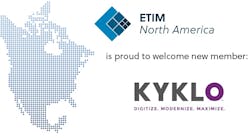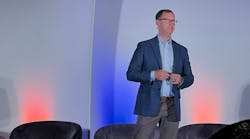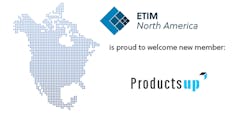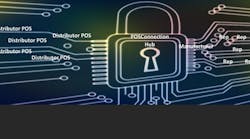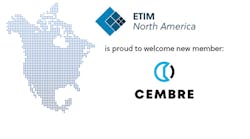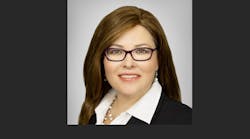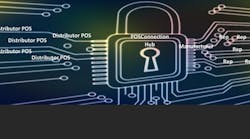One of the long-standing obstacles to getting more of the industry wired together for electronic data interchange (EDI) has been the number of connections necessary to make it work. Customers do business with dozens of suppliers, distributors with hundreds of manufacturers, manufacturers with thousands of customers. The cost of setting up a separate system to communicate with each one makes proprietary EDI impractical.
Enter a small but active group of distributors and manufacturers who have been thinking about this problem a lot. They've come up with a potential soluti on. Working through the Uniform Code Council (UCC), an organization that has issued standards for bar code labels and other product identification and information exchange methods in a variety of industries, these distributors and manufacturers are working to create an EDI standard for all commercial/industrial markets that will enable manufacturers, distributors, end users and everybody else involved in the product channel to standardize their computer systems in a way that allows them to communicate with everybody in much the same way.
The goal is to see EDI used more widely, says one of the distributors driving this initiative, Steve Tecot, former chairman of Tecot Electric Supply, Newcastle, Del., which is now owned by Rumsey Electric, Conshohocken, Pa. "We have our standards, and the industrial distribution community has theirs, and the chemical guys have theirs, and so forth. What we said (to the UCC) was, 'Based on how we got EDI Pro together-getting a very simple mapping that satisfied our business needs-we would like the UCC to do the same thing, but across many industries'. That would be a potent concept." Being able to offer customers a system based on the proven EDIPro standard that they could use with all their suppliers from various industries would be a catalyst to implementing EDI universally, he said.
The electrical companies who got this ball rolling in the UCC envision a universal standard based on the EDI Pro standard administered by the National Association of Electrical Distributors (NAED), St. Louis, Mo. Several individuals who represent their companies at the UCC have succeeded in persuading the UCC to form a standard maintenance committee (SMC) to address industrial/commercial standards. It is that I/C SMC that would take on the challenge of defining a universal industrial/commercial EDI standard. NAED, St. Louis, Mo., and the National Electrical Manufacturers Association (NEMA), Rosslyn, Va., have task forces evaluating the issue.
Having the UCC control a standard that can be used by all industries would take the burden of administration off the NAED, but raises issues of control and continuity, says John Haluska, chairman of NEMA's Product Identification and Communication Committee, who is vice president, information systems, for Thomas & Betts Corp., Memphis, Tenn.
Even more than the risk of losing control of the standard, Haluska is concerned about disrupting the flow of communication that has led to the establishment of EDI Pro and other electronic commerce agreements between manufacturers, distributors and reps. "What we've really accomplished in the last two years in our industry is that we've gotten not only multiple manufacturers to sit down and talk things out, we've also gotten multiple distributors to sit down with multiple manufacturers and talk things out. That's a major breakthrough. So the only concern would be not to upset that communication." He points to progress on other industrywide initiatives such as the proposed Industry Data Warehouse and even a possible industrywide extranet (an Internet-type network that would be exclusive to the electrical industry). "It's all coming out of this communications effort that started with these EDI teams talking back and forth."
The task forces from NAED and NEMA are setting aside their concerns for the moment while they gather information on how the whole process could work, says Haluska who leads the NEMA contingent of what he hopes will become a joint task force on the subject.
The task forces plan to make a trip together sometime in the first quarter of this year to visit the UCC and learn more about how its SMCs work.
